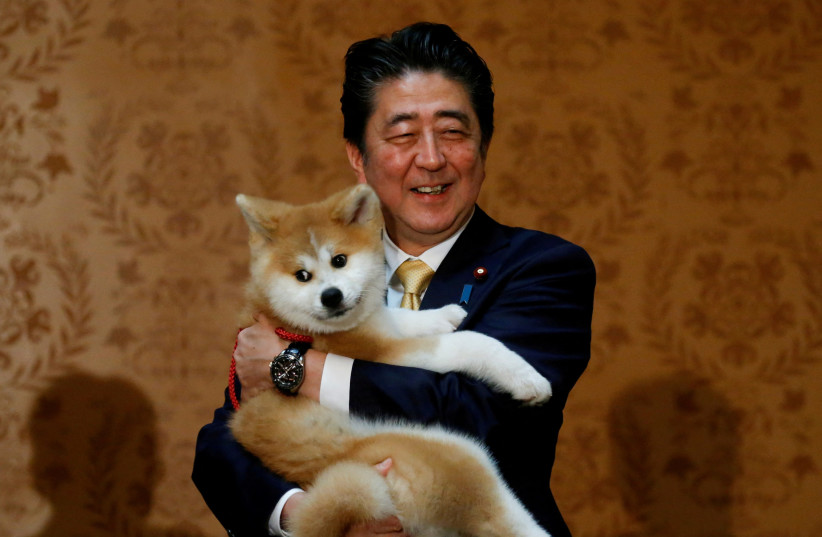We have lost a titan of Japanese and global politics. Prime Minister Shinzo Abe’s legacy will be one of bringing Japan’s meteoric rise into the mainstream of international affairs. Abe revolutionized modern Japanese relations with its allies and how it countered China. The world is undoubtedly better off through Abe’s reforms during his political tenure. Let us remember Shinzo Abe for how he strengthened Japan along with democratic nations around the world.
Abe was born into a political dynasty, the son of a foreign minister and grandson of former prime minister Nobusuke Kishi. Abe modeled much of his worldview after his grandfather, pushing for a more self-reliant and militarized Japan. Following World War II, Japan put in place what is known as a pacifist constitution, essentially outlawing war capabilities. However, Abe would continue his grandfather’s beliefs that this did not prevent Japan from pursuing military advancements that could be used defensively.
His career was not without struggle; he had a rough first term as prime minister, leaving office within one year. He would return years later to serve nearly a decade, only resigning due to health complications. Once out of office, he was still a leading voice for the Liberal Democratic Party (LDP) and one of the most influential members of Japanese society.
Abe pushed for more significant ties with allies. Deemed controversial at times, Abe wanted Japan to increase military partnerships and to train with other nations. Abe envisioned a Japan that could come to the aid of others, not only rely on them for protection. The concept was simple: the world needed a Japan that could do more than provide economic strength.
Within Japan, economic reforms were also center stage. With what would become known as Abenomics, Japan saw new monetary and financial policies that sought to bring Japan out of plateauing. Japan turned to monetary easing, greater access for individual investments and shifts in the national bank. Currently, Japan is the third-largest national economy behind the United States and China.

A devout anti-communist, Abe was everpresent in countering China internationally. Abe would regularly push the US to do more to defend Taiwan and work to strengthen relations with regional partners, such as South Korea. When China banned the imports of Taiwanese pineapples, he happily posed with the supply he purchased.
Following the US withdrawal from the Trans-Pacific Partnership, Japan rushed to replace it with a free trade alliance of 11 nations. Abe understood that countries are stronger when they lock arms rather than stand against massive forces separately.
This willingness for global cooperation did not mean the ceding of Japanese sovereignty. Abe was unapologetic about his love for Japan, more than once putting himself in hot water by avoiding sore subjects in Japanese history. Abe would be the first Japanese Prime Minister to visit Pearl Harbor and the site of the sunken USS Arizona. He wanted a balance of advancing Japan without dwelling on the past whenever he could.
“To defend freedom, democracy, human rights and the rule of law” are the principles Shinzo Abe declared to stand on. An assassin’s bullet does not snuff out those ideals; it must serve to only solidify our resolve in them. The world as a whole is better off due to prime minister Abe and we now have a void where he stood.
The writer is pursuing a master’s degree in public policy (environmental policy) at Arizona State University and is engagement chair for the Young Republicans National Federation.
